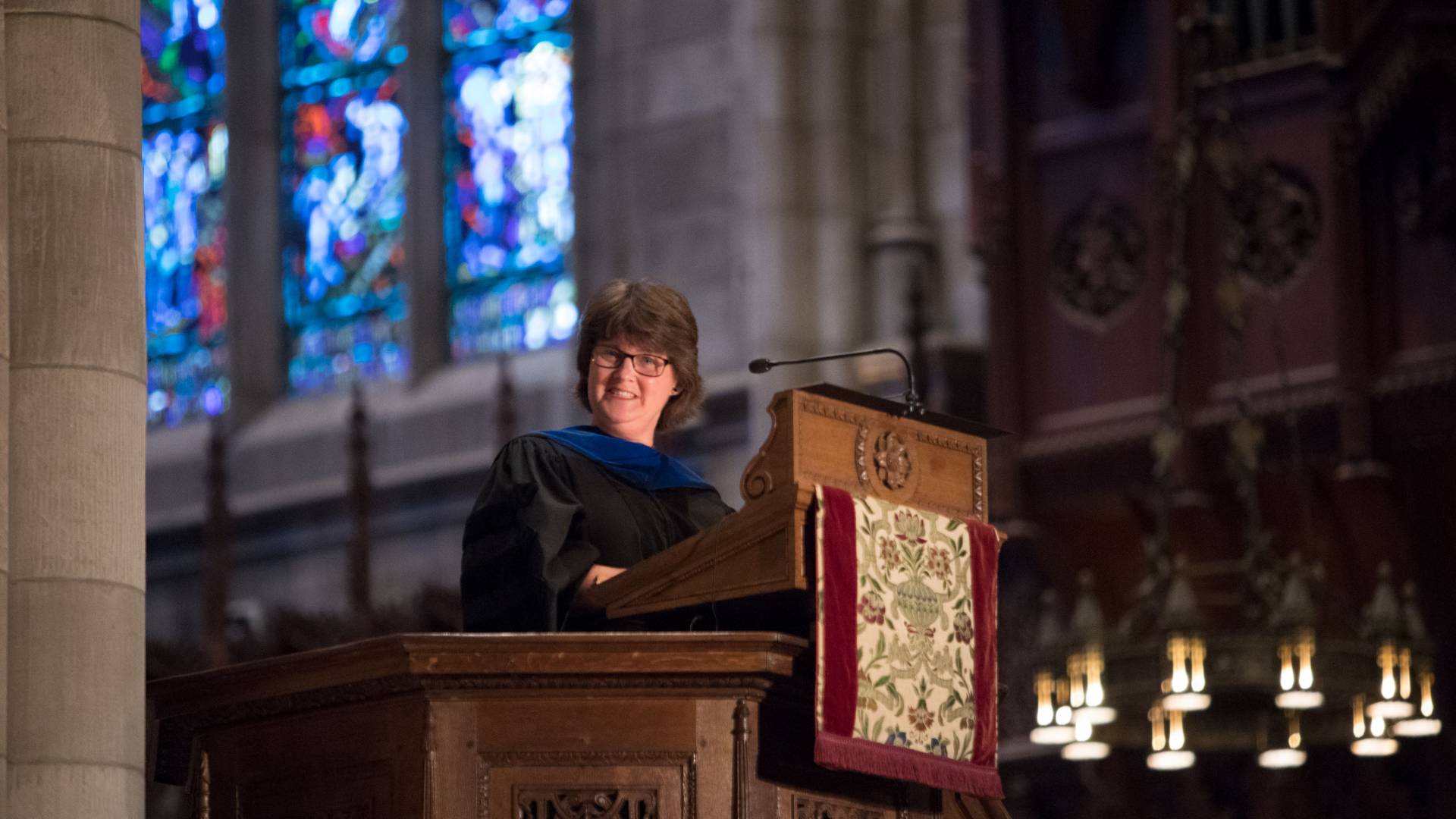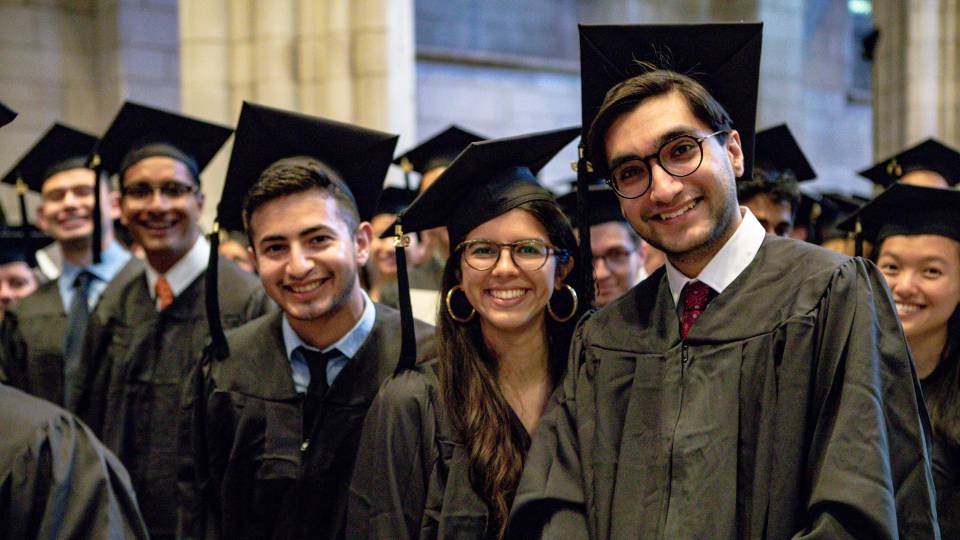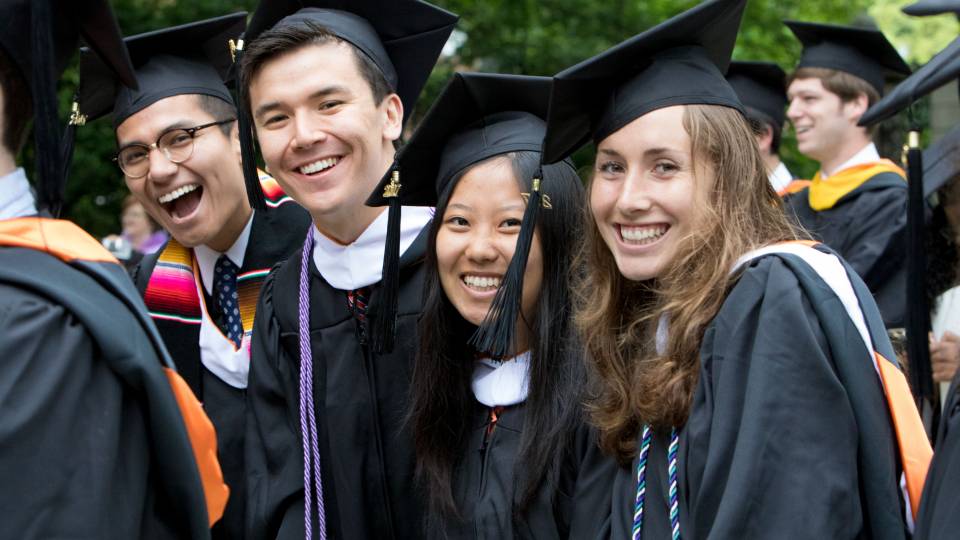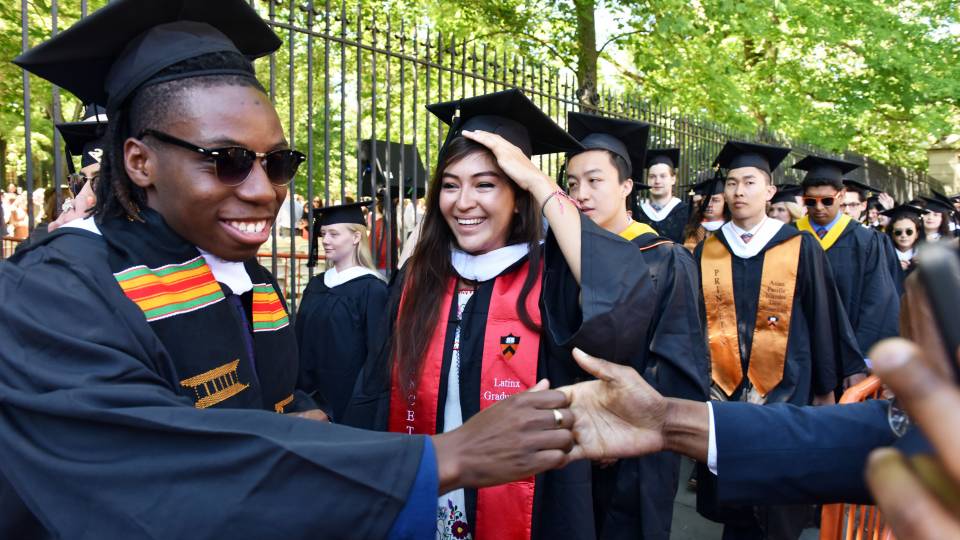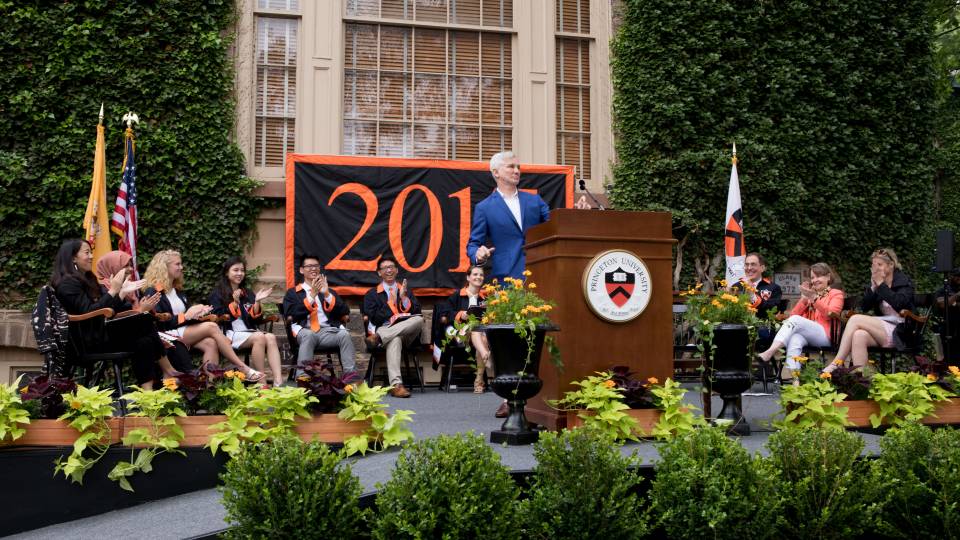Princeton alumna Anne Holton stressed the values of humility and hope in her Baccalaureate address to the Class of 2017 in the University Chapel on Sunday, June 4. Holton, who graduated in 1980, is a former first lady and former secretary of education of Virginia, and is now a visiting professor at George Mason University. She has focused her career on advocating for families and children.
Princeton's Class of 2017 kicked off graduation events Sunday, June 4, at the University's 270th Baccalaureate, an interfaith service that offers seniors a moment of reflection between the weekend's revelry of Reunions and the upcoming celebrations of Class Day and Commencement.
The Baccalaureate service, one of Princeton's oldest traditions, was held in the University Chapel and featured music, blessings and readings from a range of faith and philosophical traditions.
In her Baccalaureate address, Princeton alumna Anne Holton stressed the importance of humility and hope in handling failure. Holton's career has focused on advocating for families and children. She is the former first lady and former secretary of education of Virginia, and is now a visiting professor at George Mason University's Schar School of Policy and Government, and the College of Education and Human Development.
Holton's husband, U.S. Sen. Tim Kaine, was the vice presidential running mate for Hillary Clinton's 2016 presidential campaign. Holton also shared lessons the couple learned from the experience.
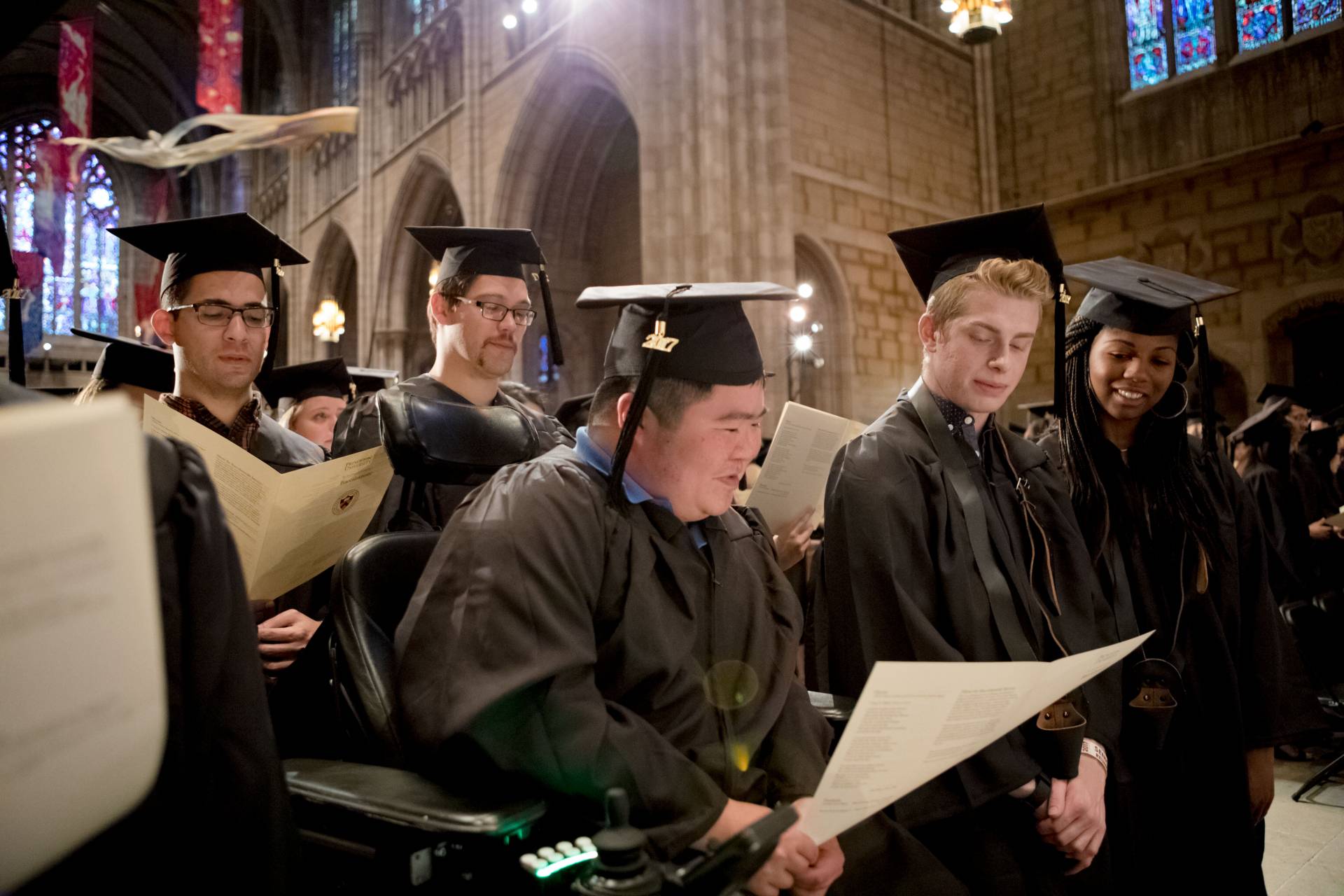
Members of the Class of 2017 look through the Baccalaureate program during the afternoon ceremony in the chapel.
The ceremony began with seniors wearing traditional gowns and mortarboards processing into the chapel under an overcast sky. Families and friends gathered on Cannon Green to cheer the students as they marched by and to watch the ceremony on large screens.
The Rev. Alison Boden, dean of religious life and the chapel, led seniors in an invocation. University President Christopher L. Eisgruber offered a welcome to students, but first asked guests for a moment of silence to honor victims of the previous night's terror attack in London.
Eisgruber went on to recall the many ways graduating seniors have upheld the University's mission to be "in the nation's service and the service of humanity."
"Some of you engaged in direct service, volunteering with the Pace Center in the communities surrounding Princeton, participating in an international service project or serving within the University as a student leader," he said. "Others of you chose the path of advocacy, raising your voices to argue for justice or assist those in need. Many of you harnessed Princeton's intellectual resources to conduct research on pressing issues ranging from environmental sustainability to economic development to health care. All of you, I hope, grew as thinkers and as citizens."
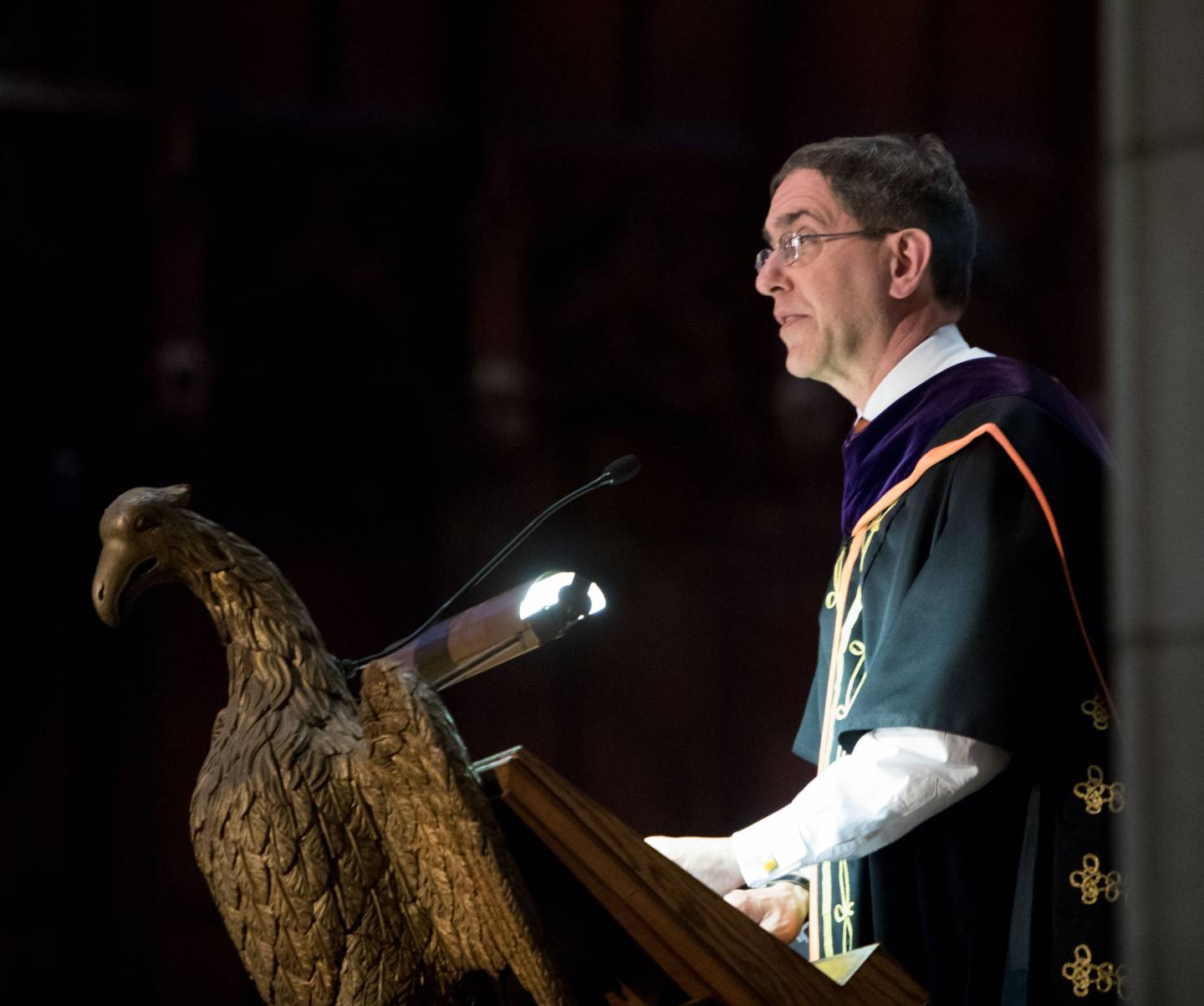
Princeton University President Christopher L. Eisgruber welcomes graduating seniors at the start of Baccalaureate, calling the ceremony one of Princeton's oldest and grandest traditions.
As seniors prepare to make the transition from students to alumni, Eisgruber said he hopes a commitment to service will continue to shape their lives.
"At the heart of our community is the desire and responsibility to make the world a better place," he said. "As you enter your next stage of life as a Princetonian, I know you have left our campus better than when you arrived, and that you are poised to have the same impact on the world around us."
Eisgruber noted the commitment to service upheld by Holton, with her life "dedicated to serving the most vulnerable members of society."
Holton earned an A.B. from Princeton's Woodrow Wilson School of Public and International Affairs in 1980 and a J.D. from Harvard Law School in 1983. Before holding public office, she was a lawyer and juvenile court judge whose work supported legal aid clients, family-friendly policies, and helping children and families in the foster care system.
Holton told seniors she was "humbled and grateful" to share the important moment of graduation with them. She recalled her first days as a Princeton student and an important lesson she learned in dealing with failure.
"I frankly had not had much experience with failure. Like many of you, I expect, I had been a strong student and successful outside the classroom as well. Well, Princeton quickly remedied that deficiency in my experience," Holton said. "I thought of myself as particularly good in math so signed up that first fall for linear algebra. … It did not take long watching cryptic symbols fly and multiply across the huge chalkboards of our Fine Hall classroom for me to realize I was hopelessly incapable of the abstraction required for theoretical math à la Princeton 1976."
But, Holton said, she was able to pass the class thanks to a smart and supportive study group she organized in her dorm hallway.
"[I] learned crucial lessons of humility and appreciation of differential human talent," she said. "I also learned that sometimes it's okay to try something so hard that success is not a foregone conclusion."
Forty years later, Holton reflected on coping with another failure when the Clinton-Kaine campaign lost last fall. She said the months on the campaign trail were an "honor and a privilege," and that she and her husband met incredible people across the country who care deeply about this country's democracy.
"But we failed in our mission of winning the election," she said. And that failure brought her back to two crucial values when faced with disappointment and challenges:
- Humility — "No matter how much I might strive to be, no matter how much my Ivy League training told me I could learn anything or be or do anything, I am not omniscient or fully in control of my own or the nation's or the world's destiny," Holton said.
- Hope – "… To believe, sometimes against all evidence … that things do ultimately work out for the good. Not necessarily in ways we understand, or on our human timetable, or even in ways of earthly accounting. But fundamentally as Martin Luther King said ... that the arc of history bends toward justice, and I will add, toward mercy, and indeed toward love," she said.
In closing, Holton wished seniors many successes in their lives after Princeton. She noted that "an instructive failure or two" in life and in their time at Princeton will help them deal with "hard things" in the future, with humility and hope offering guidance along the way.
The Baccalaureate service will be available later for viewing online. End-of-the-year activities will continue with Class Day for seniors and the Hooding ceremony for advanced-degree candidates on Monday, June 5, and Commencement on Tuesday, June 6.

Senior Yun-Yun Li reads a blessing during the service. The interfaith ceremony featured music, blessings and readings from a range of faith and philosophical traditions.
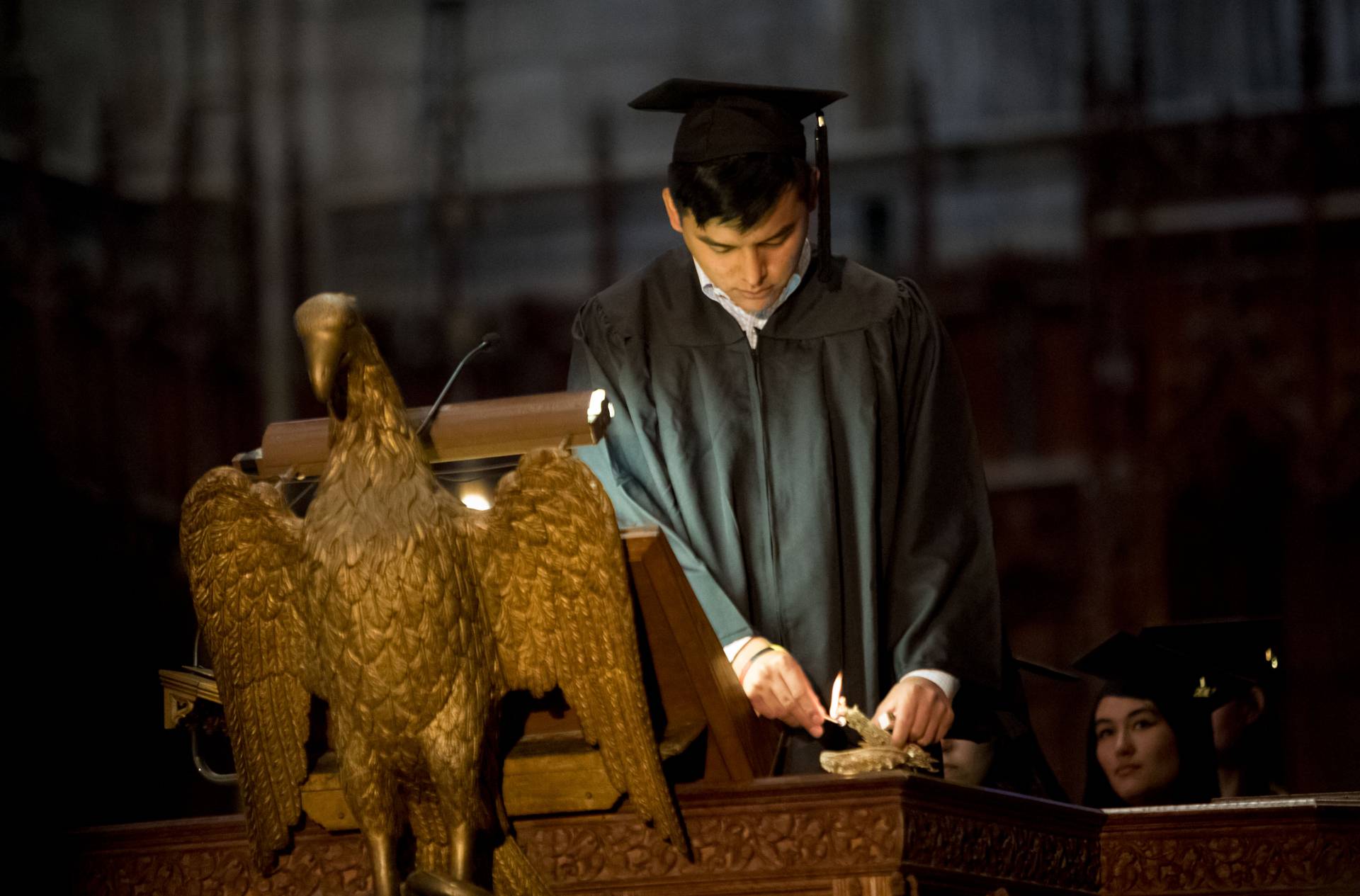
Emery Real Bird, a member of the Class of 2017, burns sage collected from his family's ranch on the Crow Indian reservation in eastern Montana as part of a "smudge," a ritual in which indigenous groups cleanse and purify the environment. He gave a short blessing in the Apache language.
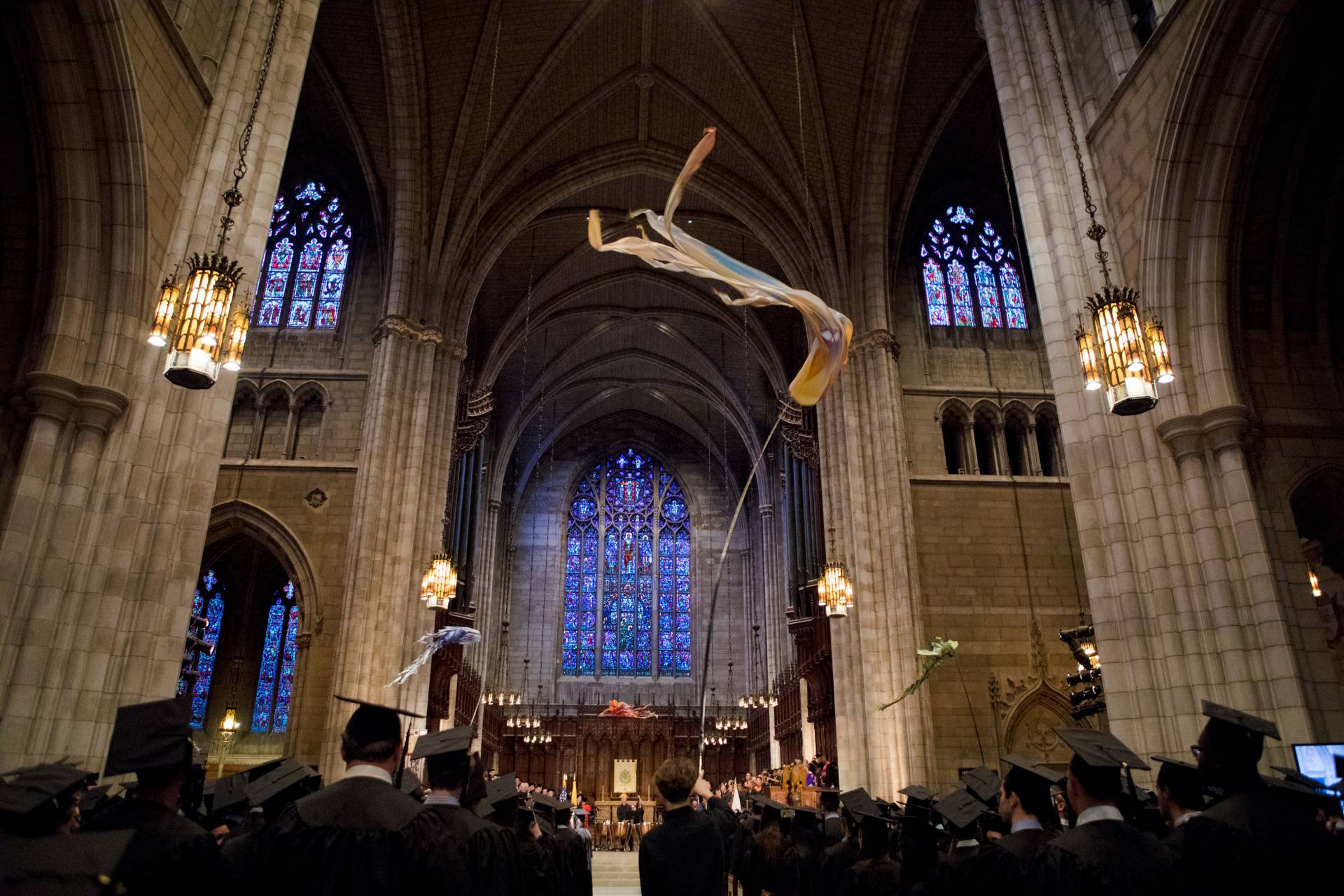
Festive kites fly inside the University Chapel during the service.
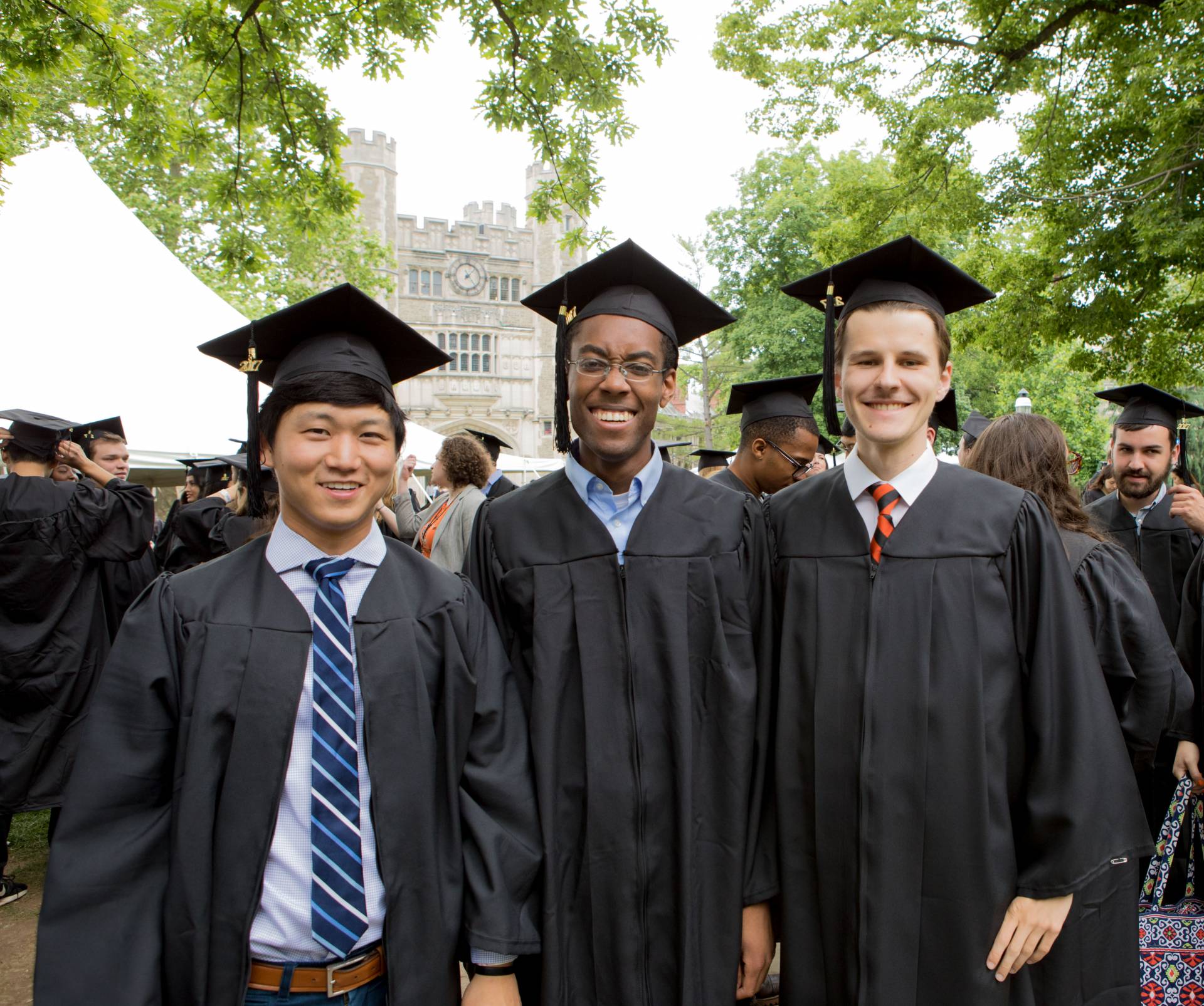
Seniors (from left) Yuan Wang, Joseph Obiajulu and Artur Filipowicz line up at the start of the service. The ceremony was the first time the seniors wore their traditional gowns and mortarboards.

Seniors share hugs and laughs as they wait to process into chapel. The Baccalaureate ceremony offers students a moment of reflection in between this past weekend's revelry of Reunions and the upcoming celebrations of Class Day and Commencement.

Sharing the memorable day are senior Therese Perales with sister Claire, 9, and brother John, 7, who visited the campus from Fort Worth, Texas, for the first time for their sister's graduation.

A family gathering includes senior Gabriel Fisher, third from left, with (from left) mother Pearl Beck, father David Fisher, nephew Yehuda Brody Fisher (16 months), brother Ariel Fisher (a rabbi at Princeton's Center for Jewish Life), brother Jonah Fisher and 2016 alumna Isabel Henderson.
